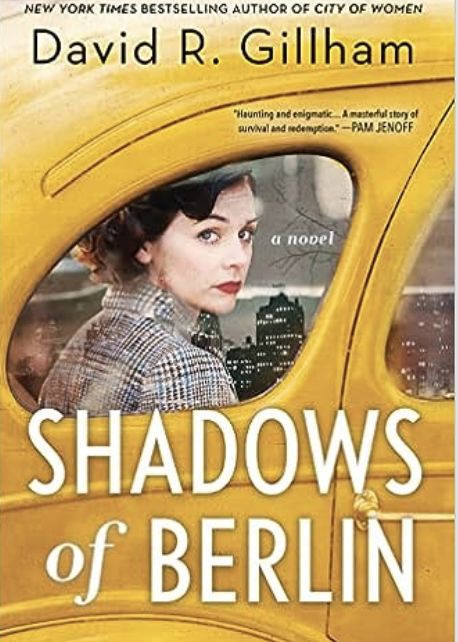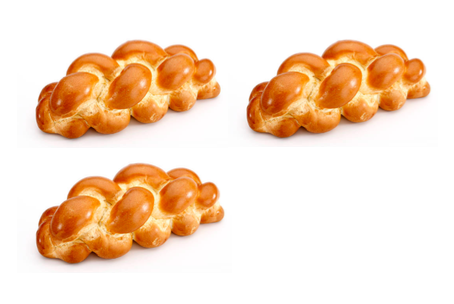Haunted by Memories – Shadows of Berlin
By Susie Rosenbluth and Sue Weston, Two Sues on the Aisle
Haunted by memories from Nazi-occupied Europe, many Holocaust survivors suffer silently. Their actions or failure to act provides the backdrop for David Gillham’s book, Shadows of Berlin. Set in 1950s New York City this historical fiction follows young Rashka Morgenstern (whose married name is Rachel Perlman), a Berlin-born daughter of a renowned painter. Rachel arrived in America, a displaced person, finding her only family, Uncle Feter Fritz, a master at survival who places himself first and foremost, creating a reputation as an art dealer by representing his sister.
Shadows of Berlin is told through flashbacks with Yiddish phrases interspersed, as Rachel reconstructs and comes to terms with her childhood memories. With the help of her therapist, Rachel learns to put the past behind her, accepting what she did as a child to survive.
The book focuses on the guilt carried by survivors, many of who faced inhuman conditions, forced to make concessions to avoid immediate death while nothing was guaranteed. These perspectives were impossible to share with American-born Jews, raised in a protected environment where they were unable to grasp the sheer magnitude of Jewish deaths during the Holocaust and they felt shame for their ignorance.
The Villiage – an Oasis
By setting the story in New York City, Gillham exploits and explores the cultural setting of the Village, an oasis where hippies and artists lived isolated from the racial issues facing the rest of the country. Gillham introduces a subplot, as sister-in-law Naomi, a photographer, enters into a relationship, with an African American law student, providing parallels to Rachel’s life as an outsider.
Gillham’s precision with the language of the 1950s and attention to detail provide an air of authenticity, down to the Chef-Boyardee cans, Ballantine beer, Lucky Strikes cigarettes, and even slipcovers only removed from the sofa for special guests.
Connecting with Her Past
Rachel, haunted by ghosts from her past, imagines her mother (who was killed in the death camps) materializing at the dining room table, smoking a cigarette and engaging in conversations, as the past invades the present. ‘Before she was Rachel from America, she was Rashka or Rokhl or Ruchel, or her mother’s Little Goat’ a talented artist like her mother, but filled with guilt ‘What if she had never noticed the red-headed woman in the Berlin café? What if pigs could fly? What if.’ Gillham brings these worlds together, as Rachel’s husband attempts to understand his young wife.
The story takes Rashka from a life of opulence to barely managing to exist, as she and her mother become U-boats, Jews who went underground hiding in the shadows, after abandoning any Jewish identification ‘the Judenstern.’ Later, Rashka is trained as a tracker locating U-boats, people who looked like her, for arrest and deportation. This weighs heavily on her throughout the novel.
Finding Acceptance
The moral consequences associated with such decisions, forced by the unnatural conditions that the Jews lived under, employed as catchers, hunting other Jews, in an attempt to temporarily avoid the death camps. Rashka had a few regrets hidden deep in her soul. Her fear was that ‘the ugliness’ hidden inside her would be exposed to the world through her art, or in a child. But these were fears she dared not share.
Her connection with the past, and to The Red Angel, Angelika, her mother’s muse, changes with the discovery of her mother’s painting in a pawn shop. Angelika shares an adult’s perspective, telling Rachel about her mother’s love and sacrifice, correcting Rachel’s perception that her mother had put art first. This conversation provides her with a sense of closure.
Moving Past the Guilt
The story touches lightly on the shame of the American-Jewish community who could not possibly understand what happened in Europe. To help them understand, Rachel’s therapist encourages her to paint, to let the world know. By sharing these long-hidden stories, the Shadows of Berlin forces the world to remember. At the same time, it absolves families of their feelings of failure for not preventing the atrocities of the Holocaust. Rachel’s mother sums it up ‘Tsigele. Listen to me. For once, please listen. Art is not always beautiful. There is horror and ugliness in the world that must be painted too. It is not beauty; it is the truth that’s at the heart of every true artist’s work. … Your paintbrush is a weapon! Use it!’
Shadows of Berlin encourages us to embrace our history, by sharing stories that have been hidden too long.
*****
Two Sues on the Aisle bases its ratings on how many challahs (1-5) it pays to buy (rather than make) in order to see the play, show, film, book, or exhibit being reviewed.
Shadows of Berlin – received a three Challah rating







